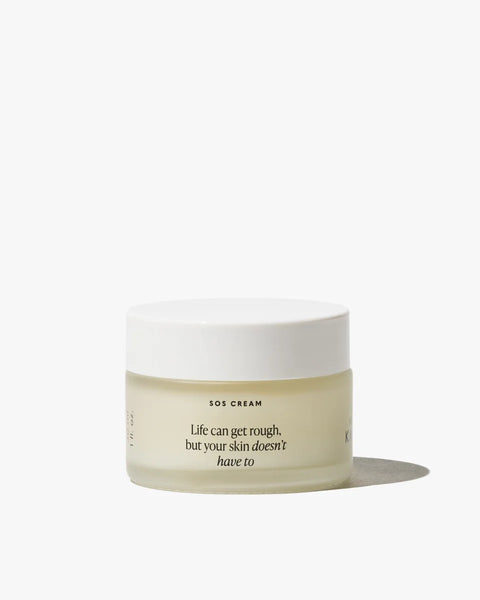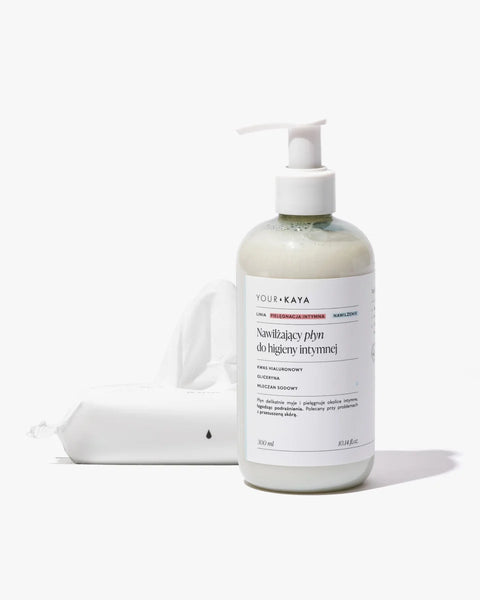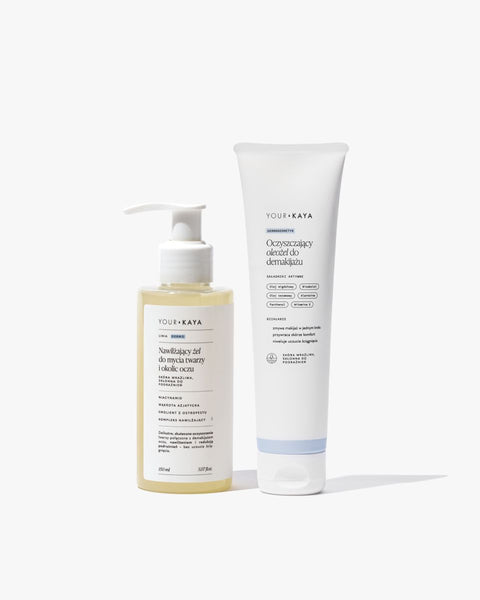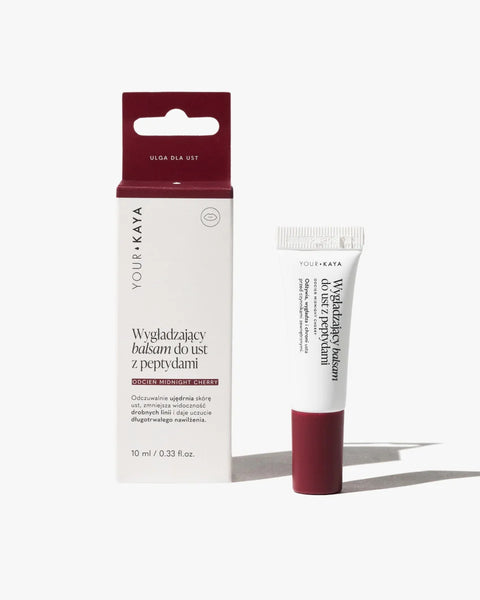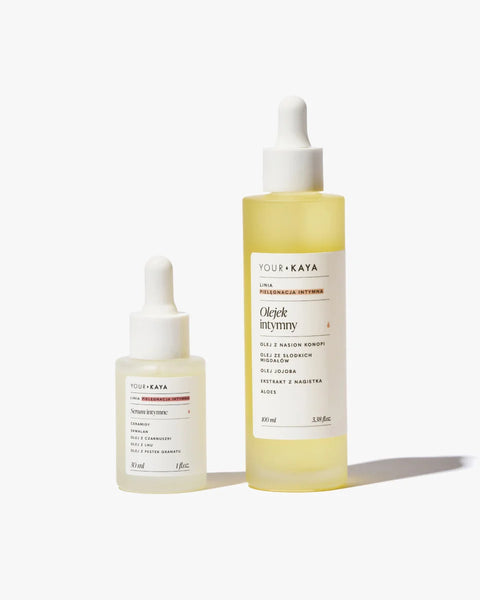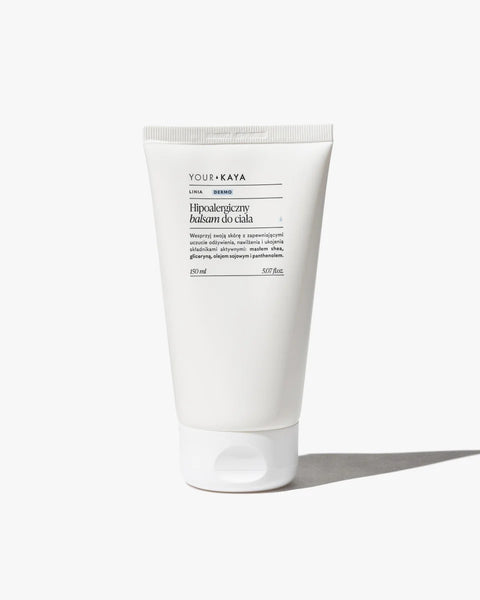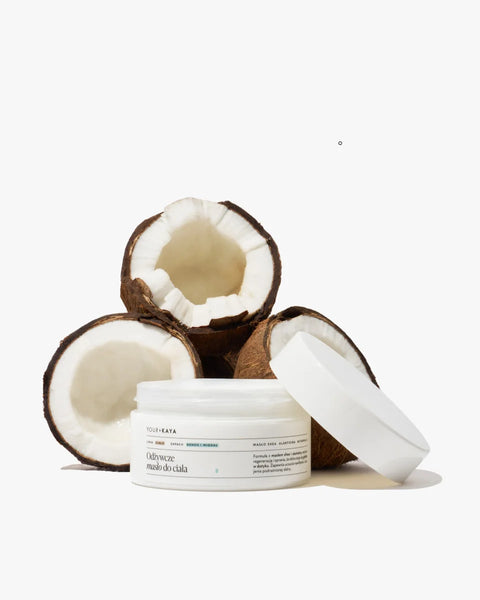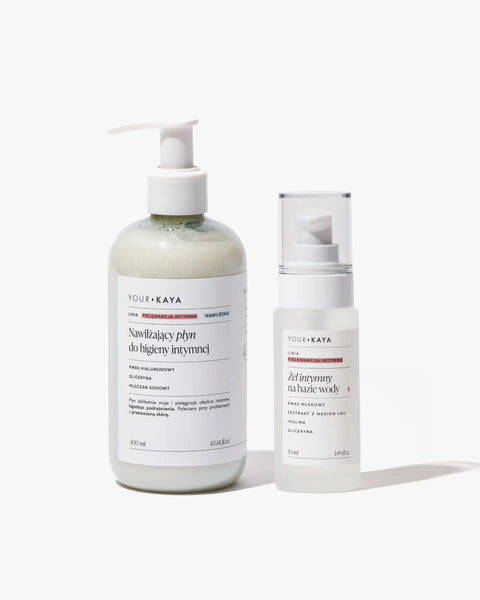I dare say that almost everyone has seen one of those legendary pad commercials at least once in their lives, where the blood has a beautiful blue color, and the person on the screen with their period happily prances around the city in flowing clothes. Forgive me for my ironic tone - you know perfectly well that we regularly recall these images, mocking them a little, but above all pointing out their harmful overtones. Why? Because reality is not like that. Any manifestation of embellishing (literally) and beautifying menstruation distracts from the actual needs of menstruating people and their discomforts during their period. But that is not the biggest problem - blue blood is just the tip of the iceberg of the taboo of the menstrual cycle.
One of the most significant problems related to it, affecting people in many countries of the world (including Poland), is menstrual poverty. Because it is one thing to wryly recall outdated advertisements, and another to not be able to meet your menstrual needs, even those as basic as the supply of hygiene products.
What do we call period poverty?
Think about the worst period of your life. One where you experience all of its worst symptoms. A stomach ache that no painkillers can cure. Dizziness. Vomiting. Backache. Migraine. And if that wasn't enough, there's no chocolate in the house.
Now imagine that all these problems suddenly cease to have any significance. You are more concerned about the fact that you do not have access to the necessary hygiene products. For various reasons, you cannot afford pads or tampons . What do you do? What you are forced to do - you protect yourself from leaks with rags or old socks filled with foil because you are homeless . You cut out makeshift pads from old clothes because you are embarrassed to ask a carer at the children's home for help. Or you put on dark pants, skip classes at school on those days and try not to think about the constant leakage or unpleasant smell, hoping that "somehow it will be". Comfort of life? None, and on top of that you are burdened with the risk of catching troublesome intimate infections, which you also cannot afford to treat. Does it sound like the worst horror movie scenario? No - this is the 21st century and period poverty , which is the everyday life of many menstruating people who do not have enough money to buy the necessary hygiene products.
Period poverty is limited access to hygiene products during menstruation due to economic reasons. According to UNICEF and WHO, the problem of period poverty affects about 500 million people worldwide. Additionally, period poverty is associated with problems with maintaining proper body hygiene due to poor living conditions (UNICEF reports that only 27% of the world's population has access to working sanitary facilities at home), as well as a lack of basic education related to menstruation . As you can see, the problem is serious and multidimensional. And importantly - it does not only concern the poorest, least developed countries. According to the Kulczyk Foundation and Founders Pledge report, every 5th person who menstruates in Poland does not have enough money to provide themselves with pads , tampons or sanitary pads during menstruation.
Menstrual cost: who can afford pads and tampons?
The average person with a uterus menstruates between 350 and 450 times in their life. The hygiene products they have to invest in total cost around PLN 36,000. They can reduce this amount by spending a few dozen zlotys at once on a menstrual cup , which, with proper care, will last up to 10 years, or reusable pads (which, however, require washing, which may be problematic for some people). Or, as most people do, they will decide to buy the cheapest products, which are far from ecological solutions (these types of pads are usually made of synthetic materials and undergo a process of repeated chlorine bleaching). However, they fulfill their basic task, which is to provide protection against free bleeding and leakage. These cheapest, store-bought hygiene products have a monthly "menstrual cost" of just a few to a dozen zlotys (depending on the amount of bleeding).
So what is this scandal about?
It is completely justified.
The problem arises when even these few zlotys on a monthly basis pose a dilemma: should I eat or bleed with dignity?
It is worth noting here that the lack of money to buy necessary hygiene products may be the result not only of a bad financial situation, the homeless crisis or difficulties in finding a job, but also of economic violence. It consists of treating money as an instrument of control over another person (or group of people). The victim is manipulated and subordinate to the perpetrator, who exercises financial control over them, limits their access to money, often even robs them and uses the money they earn for their own purposes. This mainly (but not only!) concerns women - they struggle with this problem not only at home, but also on the job market, where they are often offered a lower rate than men in the same positions. Unfortunately, in Poland there is still little talk about economic violence - every third resident of our country believes that the allocation of "pocket money" by their partner and his management of the joint property is a manifestation of resourcefulness. I know that there are relationships in which this type of practice works, but I am referring to the extreme – violent relationships based on an unhealthy, disturbed hierarchy of values between partners.
What are the risks of period poverty?
The topic of menstruation and all the other “charms” of menstruation is still shrouded in an unfair taboo – “those days” in our culture are not a time of celebration, but rather camouflage. In the 21st century, teenagers still hide pads in their sleeves, exchange tampons under their desks in school, and are more afraid of red stains on their pants than health problems.
Due to limited access to pads or tampons, young people often give up participating in classes and do not go to school during their period. We can assume that during these few days of bleeding, which keeps them at home, they lose at least a dozen valuable lessons, not to mention the limited contact with peers and the lack of opportunities to meet friends. It goes without saying how much of an impact this has not only on their development, but also on building self-confidence and self-acceptance. This is also not indifferent to older people, who, because they cannot afford to buy pads and other hygiene products, do not go to work on "those days" for fear of embarrassing themselves with a red stain on their clothes.
A period is not a choice, it is a natural consequence of having a uterus and a vagina, a result of biology. Period poverty simply makes it impossible to experience this moment with dignity. Access to menstrual products and proper hygiene are key to preventing intimate infections, which in certain situations (for example, toxic shock syndrome) can be life-threatening.
In some cultures and religions, menstruation is considered a state of impurity and is associated with the need to exclude from certain celebrations (not only those related to religious worship). You can read more about this in our text on the taboo of menstruation and the perception of menstruation in different cultures . Interestingly, in many African countries the situation is completely different - people on their period are worshiped there, and the blood they excrete, according to folk beliefs, has magical and healing properties.
The “periodic revolution” of hygiene products
There is not much talk about period poverty in Poland. Fortunately, we have wonderful and dynamic grassroots initiatives, such as Akcja Menstruacja , a project focusing on the issue of period poverty and fighting against the limitations by raising funds not only for pads and tampons, but also menstrual cups and other products for those in need from refugee centers, orphanages, single mothers' homes and other such institutions. Among its projects, Akcja Menstruacja has the Hej, Dziewczyny! initiative . Its aim is to supply schools with free period products, and thus to help those students who do not have access to such products due to their bad situation. Despite the pandemic, in the winter semester of 2020, the campaign reached as many as 30,000 people struggling with the problem of poverty!
Additionally, thanks to the members of the Menstruation Action, we can find lockers called PPO (Periodic Aid Point) in public spaces. This is also a form of free support for people in crisis. In turn, those for whom buying hygiene products is not a major problem are encouraged to help and replenish supplies in PPO lockers. The Pink Box operates on the same principle - it is located in schools, municipal social welfare centers and other institutions in many cities in Poland.
The advantage of such campaigns is anonymity. The fight and attempts to eradicate a taboo so deeply rooted in our culture can take some time ;) That is why such actions give those in need a sense of security and subtle, intimate support. Many people affected by the problem of period poverty must still face a constant sense of shame and exclusion. Children are afraid to ask the nurse at school for a pad. So how and to whom should an adult, a single parent or a homeless person turn?
Such campaigns are popularized not only in Poland. Kulczyk Foundation conducts its charitable activities in countries such as Kenya, Nepal, Bangladesh and India.
In India, period poverty is a huge problem—only about 10% of menstruating people in the country use sanitary products. This is a source of social stigma. There are also grassroots initiatives like The Pad Project, where people living in small towns around Delhi can get involved in the production and distribution of locally made, cheap pads. This not only helps maintain proper hygiene during periods, but also helps Indian women achieve financial independence. (Psst! You can watch the Oscar-winning 2018 documentary Period Revolution , directed by Rayka Zehtabchi, about this.)
Whose example should Poland follow?
From Scotland! Free pads and tampons can be found in all educational institutions there, and soon they will be available not only to students but also to all menstruating people throughout the country. By 2022, all taxes on menstrual products (pads, tampons and menstrual cups) are to be removed there. The problem of limiting educational opportunities due to lack of access to intimate hygiene products was drawn to the attention of Aileen Campbell, Minister of Social Policy. She described access to pads and tampons as an "inalienable right, not a luxury".
Schools in England and some US states have gone in a similar direction – there, people in crisis can also count on support and free hygiene products. In turn, since June this year, educational institutions in New Zealand are to provide such assistance to their students. Its prime minister, Jacinda Ardern, indicated that 1 in 12 people living in the country misses classes and does not go to school during bleeding days due to poverty. She additionally commented on this problem as follows: "Young people should not lose the opportunity to educate themselves because of something that is a natural part of life for half the population."
We can only believe that Poland will soon be able to implement such nationwide solutions. Until then, let's publicize and promote the above-mentioned grassroots, pro-social actions. I know that even the smallest support can really affect the life of another person.
Period poverty – a real and serious problem
Period poverty knows no age or wallet size – it can affect anyone. No young or old person deserves to struggle with period poverty. Soon, on May 28, we will celebrate International Menstrual Hygiene Day. What can you do to support the above-mentioned activities and campaigns? Talk about the problem! If you can, support. Even with a kind word! Share the knowledge you have gained with friends, write a post on your social media. All – even the smallest – activities that can help remove the taboo from the problem of period poverty are appreciated. There is strength in numbers!
Created at: 07/08/2022
Updated at: 16/08/2022









































